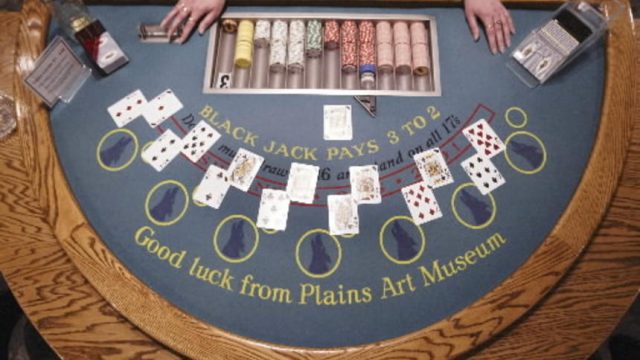John Andrist: Gambling Does Have a Price to Pay

A legislative committee voted 11-2, to not pass a House bill to permit state-owned casinos.
Introduced by the majority party chairman, Al Carlson, it was sent back to committee to avoid defeat, so it is still in limbo, trying to find more support.
But it appears to be headed for defeat. The legislature over the past couple of decades has been reticent to expand gambling, even though in voting by the people both charitable gambling and a state lottery have been approved.
Although entertaining, gambling makes little economic sense.
It is the only thing I can think of that provides absolutely no product. It is simply a transfer device.
Even alcohol, other drugs and tobacco generate some product. Gambling produces nothing. Horse and dog racing do produce something, but have input costs far in excess of the income. Racing cannot be sustained in North Dakota without a public subsidy.
You put money in, you spend part of it for administration, you give the balance to somebody else. It’s always a net loser.
[mks_pullquote align=”right” width=”300″ size=”24″ bg_color=”#ffffff” txt_color=”#000000″]State operated gambling has significantly more negative impact than private gambling. It produces income only which otherwise would fund a different economic sector — food, clothing, and those business entities that otherwise collect the money. So, in effect, state gambling produces no new, up-front revenue, leaving taxpayers with the cost of administration, capital funding, and the social costs.[/mks_pullquote]
There is little substantive cost to society from a charitable lottery or a bingo game, or an office pool, because there is no input cost. It is administrated by volunteers. Not so for a state lottery.
Most other forms produce some social consequence that everyone has to pay through our social service system.
State operated gambling has significantly more negative impact than private gambling. It produces income only which otherwise would fund a different economic sector — food, clothing, and those business entities that otherwise collect the money.
So, in effect, state gambling produces no new, up-front revenue, leaving taxpayers with the cost of administration, capital funding, and the social costs.
It survives as entertainment, but is an economic loser that also has negative social consequences — broken families and addiction services.
How about all those reservation casinos and the jobs they produce? Probably good for the tribes, but no economist would claim they have not impacted the state economy.
In effect we are simply transferring non-reservation money to the reservation. We still produce no product.
Farming, power generation, coal and oil production are the primary generators for North Dakota. Most of us make our living off of those industries in one way or another.
But they do produce needed product. Gambling yields nothing more than entertainment.
Grieving for a corporation?
I nearly shed a tear this week, when they announced the closing of two Penney stores in my area.
The news story included a photo of the Wahpeton store, a huge edifice on that city’s Main Street.
As a college student I carried a couple huge storm windows up a long ladder, quite properly terrified, when I was spending a year there attending college.
But the Penney Store in Crosby was such a big part of my life that I rarely shopped at Penneys after that store was closed, because I felt like an abandoned child.
Later I felt compelled to restore the building they occupied, the largest private structure in my community.
They were once a rock in the fabric of so many small towns, before they abandoned them for the lure of malls.
Started by a small town merchant in the Midwest by a young go-getter who was a devout Christian, Penneys never described its workers as employees in my time.
Old J.C. had early on decided they would be associates. Penney workers in Crosby were at the top of the pay scale.
After the death of J.C. in 1971 at the age of 95, the company thrived for a number of years, growing to more than 2,000 stores and building a catalog business that exceeded Montgomery Ward (now dead) and Sears (near death). Now Penney, too, is obviously in a state of decline.
Interestingly the founder of Walmart cut his teeth early on as a Penney worker, then went on to become the world’s largest retailer and a big contributor to Penney’s pain.
Now it too is beginning to show signs of stress, likely created by Amazon’s amazing ascendance.
Someday, Amazon, too, is likely to be challenged. Such is the way in our strange world of business economics.




